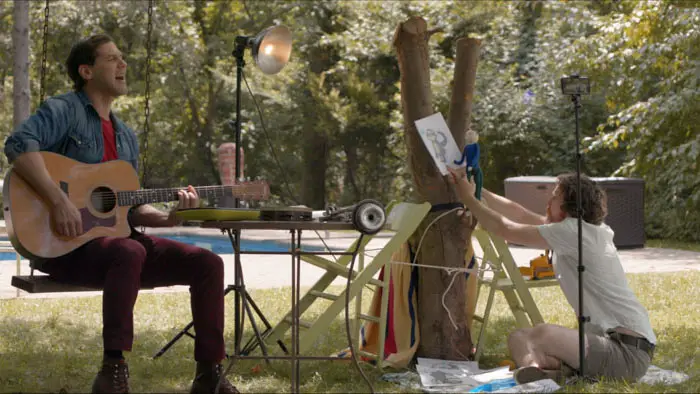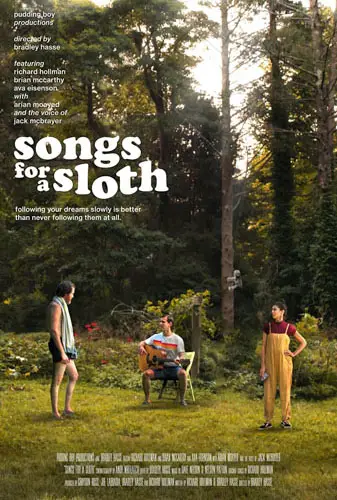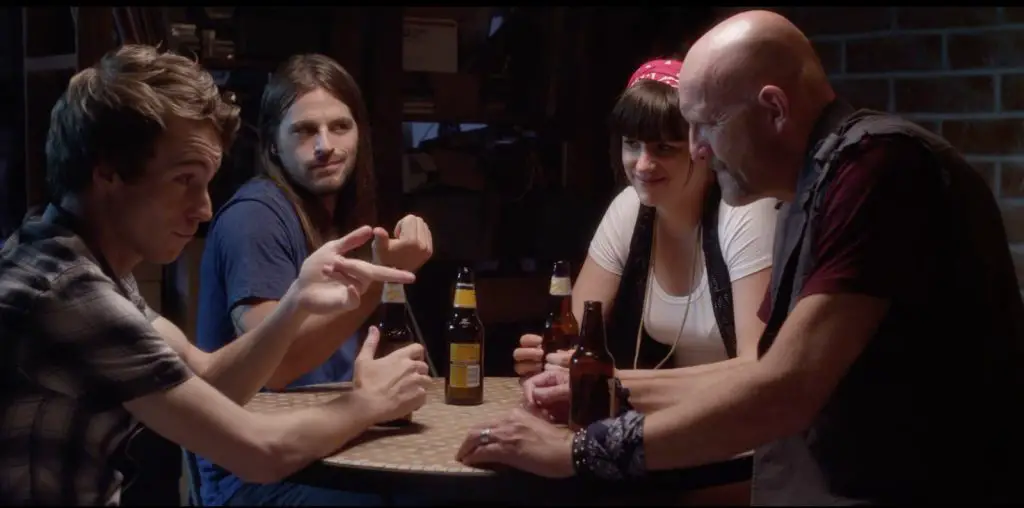
Sometimes I come across a film that is so far out of the norm that, due to sheer uniqueness, it has to be great. Writer and director Bradley Hasse’s Songs for a Sloth is a perfect example of that.
After the death of his father, Maxwell (Richard Hollman) finds out that he has inherited a sloth sanctuary. While his siblings Barney (Brian McCarthy) and Jenna (Ava Eisenson) are taking the loss well as can be expected, Maxwell is on the verge of a nervous breakdown while trying to convince everybody that he is okay. His remorse stems from the fact that he’s the one who took care of their father during those last few years. And now he’s feeling guilt, believing he did not do the best job possible.
Later, Maxwell and Barney find out that their father only left a small fund for them, and they will need $10,000 by the end of the week to keep the sloth foundation afloat. That is when Maxwell begins to have reoccurring dreams of Edgar the talking sloth (Jack McBrayer), who begs him to keep him and his sloth family alive. To raise money, Maxwell attempts to write a catchy song that will bring awareness to the sanctuary and help raise money to keep its doors opens. But he struggles with this because his father shut down his dreams of pursuing a music career. Things get even more complicated when the siblings find out about their father’s secret life.

“…Maxwell and Barney…need $10,000 by the end of the week to keep the foundation afloat.”
Only an independent film company would be willing to take a risk with such an out-of-the-box idea as Songs for a Sloth. Even with its silly synopsis, Hasse’s comedic drama possesses as much heart as it does astutely observed humor. The filmmaker creates several layers that you couldn’t even imagine would be in a film with a talking sloth. In fact, the primary negative that I have is that I wanted to see more of Edgar.
All the actors are absolutely, perfectly cast. Richard Hollman, Brian McCarthy, and Ava Eisenson have so much chemistry that it almost seemed as if they were actual siblings. Their natural rapport is evident in every aspect of the film. When there is humor, it is quirky and witty, while the drama is heartfelt and passionate, and the actors do an excellent job of bringing both to light. Jack McBrayer’s unique voice is behind Edgar, which makes the sloth even more likable than it already is. All of these things probably shouldn’t be able to work in a single story, but oddly enough, it works really well.
Although I wasn’t totally enthused by the ending, it did not take away from how much I enjoyed the film overall. Songs for a Sloth is unique and serves as a love letter to independent filmmaking with all of its risks.

"…serves as a love letter to independent filmmaking..."


